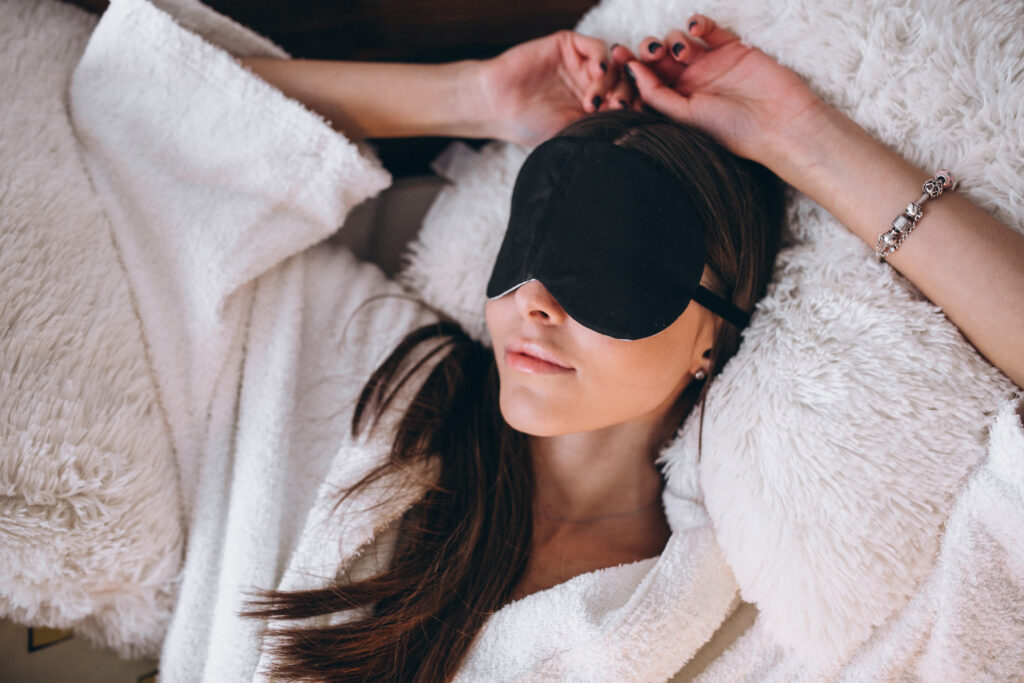Beauty
Unlock Your Potential: Empower Spirit with Nightly Serenity and Empowering Habits
The Importance of a Daily Night Routine: Tips for a Healthy and Restful Sleep
Creating a Nightly Routine for a Restful and Rejuvenating Sleep
Nightly serenity and empowering habits are essential for your overall health and wellbeing. Not only does it help you feel refreshed and focused throughout the day, but it also promotes healthy skin and hair, improves your mood, and boosts your immune system.
Establishing a nightly routine that promotes relaxation and sets the stage for a peaceful slumber is one of the best ways to ensure a restful and rejuvenating sleep.
In this post, we’ll discuss how to create a nightly routine that helps you unwind and prepares you for a restful and rejuvenating sleep.
The Importance of Establishing a Nightly Routine
Creating a nightly routine is crucial for many reasons. For starters, a consistent bedtime routine helps regulate your body’s internal clock and signals to your brain that it’s time to wind down and prepare for sleep. Additionally, a relaxing nightly routine can help reduce stress and anxiety, which can interfere with your ability to fall asleep and stay asleep.
The Benefits of a Nightly Serenity and Empowering Habits of Sleep
Getting a good night’s sleep has numerous benefits for your physical and mental health. Research has shown that a restful and rejuvenating sleep:
- Improves your memory and cognitive function
- Promotes healthy skin and hair
- Boosts your immune system
- Reduces stress and anxiety
- Improves your mood and overall wellbeing
Creating a Relaxing Sleep Environment

Your sleep environment plays a significant role in the quality of your sleep. To create a relaxing sleep environment, start by eliminating distractions. This means turning off electronics such as your phone, TV, or computer at least an hour before bedtime. The blue light emitted by electronic screens can interfere with your body’s natural sleep cycle and make it harder to fall asleep.
Next, consider the lighting in your bedroom. Aim for a dark and cool room, as these conditions are optimal for sleep. If you live in an area with streetlights or other sources of light pollution, consider investing in blackout curtains or an eye mask to block out excess light.
Finally, pay attention to the temperature in your bedroom. Research has shown that the ideal sleep temperature is between 60-67 degrees Fahrenheit. Adjust your thermostat or bedding accordingly to create a comfortable sleep environment.
Establishing Consistency in Your Nightly Routine
Consistency is key when it comes to establishing a nightly routine. Try to go to bed and wake up at the same time every day, even on weekends. This helps regulate your body’s natural sleep-wake cycle and makes it easier to fall asleep at night and wake up in the morning.
Additionally, try to establish a consistent bedtime routine. This can include activities such as reading a book, taking a warm bath or shower, or practicing relaxation techniques such as meditation or deep breathing exercises. Doing these activities regularly signals to your brain that it’s time to wind down and prepares you for a restful night’s sleep.
Components of a Nightly Routine for a Restful Sleep
Now that you understand the importance of a nightly routine, let’s discuss the components of a routine that promotes a restful sleep.
- Skincare Routine: Establishing a nightly skincare routine not only helps improve the health of your skin, but it can also promote relaxation and prepare you for sleep. Start by removing any makeup or dirt from your face, then follow up with a gentle cleanser and moisturizer. Consider adding in a facial massage or applying a calming face mask for extra relaxation.
- Stretching or Yoga: Incorporating a gentle stretching or yoga routine before bed can help release tension in your muscles and promote relaxation. Focus on deep breathing and gentle stretches that don’t require too much exertion.
- Reading: Reading a book before bed is a great way to wind down and escape the stresses of the day. Choose a book that doesn’t require too much mental stimulation or is too emotionally charged, as these can interfere with your ability to fall asleep.
- Journaling: Writing down your thoughts or worries before bed can help clear your mind and reduce stress and anxiety. Try writing down three things you’re grateful for each night or jotting down a few things you’re looking forward to the next day.
- Sipping Herbal Tea: Sipping a warm cup of herbal tea before bed can help promote relaxation and prepare your body for sleep. Chamomile, lavender, and valerian root are all excellent choices for calming the mind and body.
- Relaxation Techniques: Incorporating relaxation techniques such as meditation or deep breathing exercises can help promote a restful sleep. Try practicing these techniques for 10-15 minutes before bed to help calm your mind and prepare you for sleep.
Final Thoughts on Creating a Nightly Routine
Establishing a nightly routine that promotes relaxation and sets the stage for a restful and rejuvenating sleep is essential for your overall health and wellbeing. By creating a consistent bedtime routine that includes activities such as skincare, stretching or yoga, reading, journaling, sipping herbal tea, and practicing relaxation techniques, you can improve your sleep quality and wake up feeling refreshed and rejuvenated each morning. Remember to be patient and give yourself time to establish a routine that works best for you, and don’t be afraid to experiment with different activities until you find what works best for your needs. Here’s to a restful and rejuvenating sleep!
